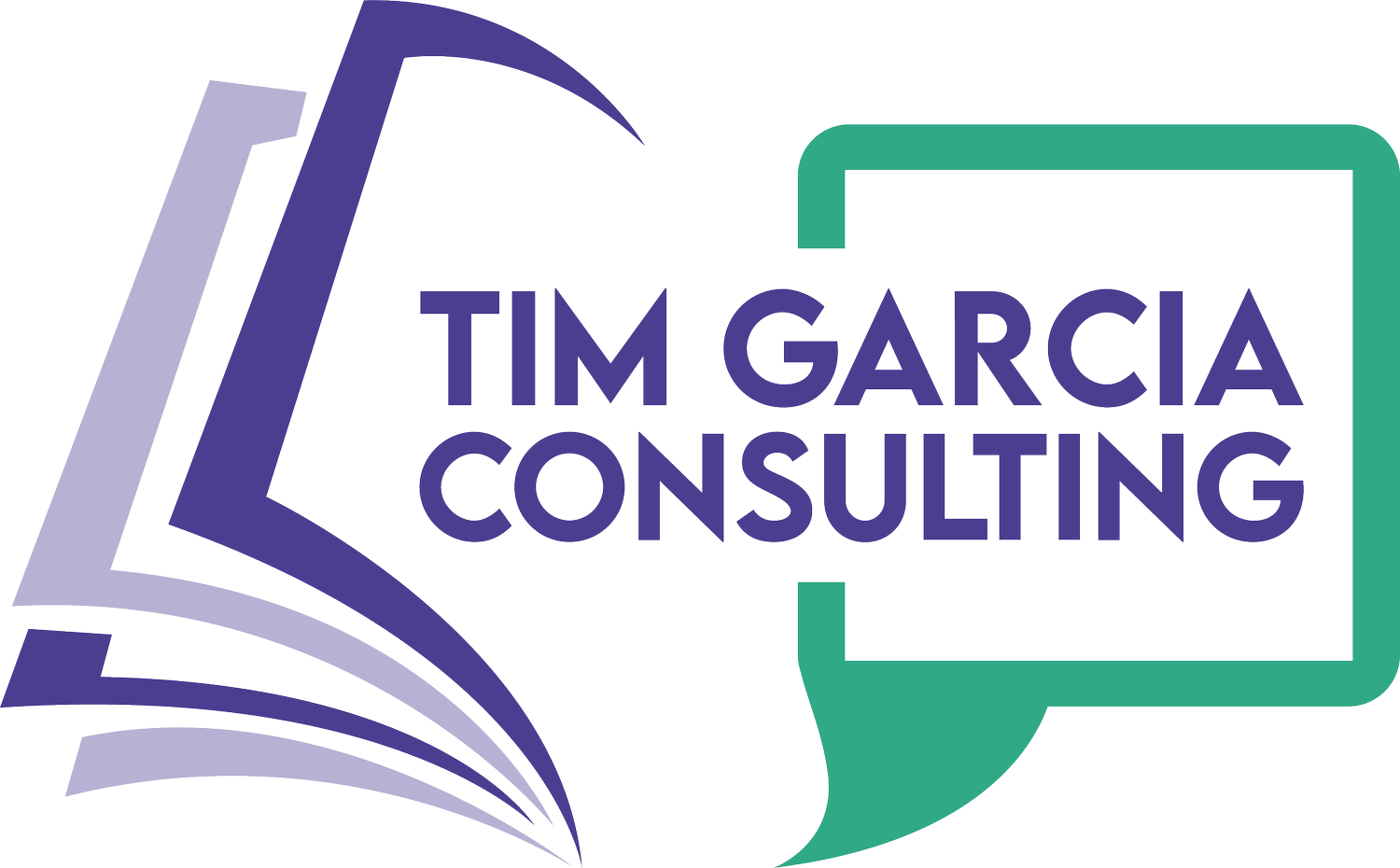FAQs
-
What are some indicators that my institution would require Tim Garcia Consulting services?
Struggling with Retention, Lack of Vulnerability, Lack of Engagement in Meetings, Lack of Solution-Oriented approaches, Stagnant Growth, etc. We can help address these with Intentional Auditing, Professional Development or Affinity Space programming.
-
What are the benefits of DEI Professional Development?
Having a more diverse staff and faculty means nothing if the culture of the institution is not actively working towards anti-racism. Through DEI Professional Development you are creating the environment for individuals to be seen, heard, and present as their authentic selves. That is how organizations maintain strong levels of retention, positive staff culture, and constantly improve and stay ahead of the ever changing world.
-
Why do we need to assess before we engage in Professional Development?
The most incredible facilitator or curriculum is useless if they do not meet the needs of the community! We could spend 4 hours focusing on mitigating white dominant culture characteristics but if the team needs to work on reflective practice and feedback, then those 4 hours have become a waste or at least not as effective or useful as they should be. That is why we start with figuring out what the needs are first!
-
Why Affinity Spaces?
Affinity Spaces are spaces for reflection, safe dialogue, and support. They allow each individual to understand their experiences with more nuance, take risks they might not take in a mixed group setting and they mitigate harm in the process of learning about identity. We all experience Affinity Spaces all the time, sports teams, grades, schools, religious/spiritual gathers, etc. We know these spaces are incredibly important for growth and community.
-
Why do we need to learn separately? Isn't that a step back?
To work towards positive identity development it is important to feel safe enough to share, ask questions and make mistakes. In Affinity Spaces, not only is all of that possible but now we have lowered the chances that in those more complex moments someone will experience harm for the learning process. The beauty of these spaces is that children and adults get an opportunity to share something in common but also understand their complexities more deeply because they can see other important aspects of their identities.
-
How do I sustain Affinity Spaces?
Once the mission and vision of the Affinity Space programming is built out, we then turn our attention to facilitation training and curriculum. While needs do change for the student and adult communities, generally strong facilitators can adjust and adapt but will have the curriculum as the foundation for the decisions they need to make. Once a cohort of students moves on, the curriculum can spiral back around and all that is needed is revision.
